Ice Breaks On The Potomac
Martin Luther King Jr's dream comes true as a black man becomes America's great white hope
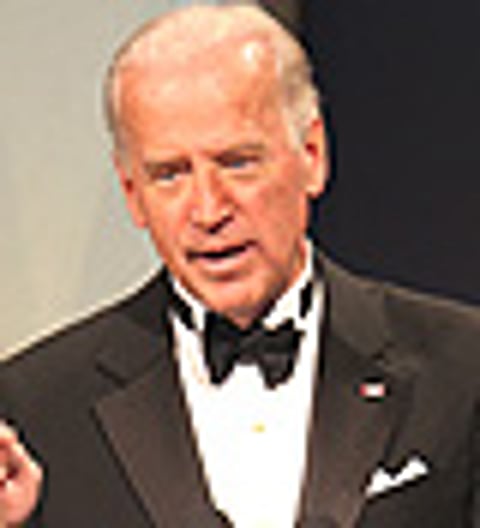
Joe Biden, 67, Vice President
A university football player, he overcame stuttering by reciting poetry for long hours in front of a mirror. Was chosen as Obama’s mate because of his experience in foreign policy. Last year, he and Obama co-sponsored a Senate bill to triple non-military aid to Pakistan. In January, was awarded the Hilal-e-Pakistan for his consistent support to Pakistan. Voted for the Indo-US nuclear deal.

Hillary Clinton, 62, Secretary of State
The civil rights movement turned this early Republican into a Democrat. Organiseda two-day strike at her college to protest the assassination of King Jr. When husband Bill was elected president in ’93, she became the first First Lady to have a postgraduate degree. At her nomination hearing, she talked of looking at "Pakistan and Afghanistan together". Popular among Indians, she voted for the N-deal.
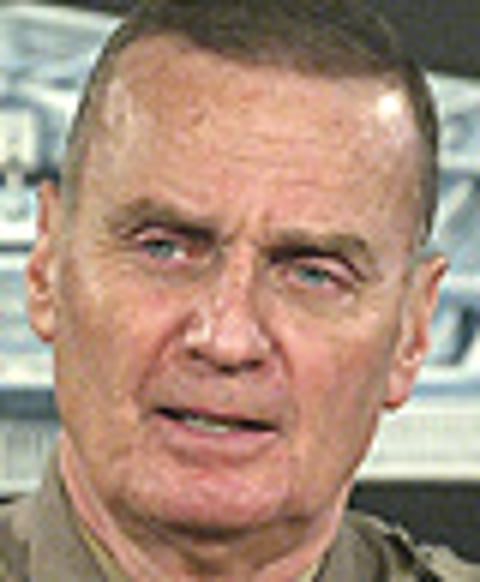
James L. Jones, 66, National Security Advisor
A former four-star general of the US Marine Corps, he played basketball for the Georgetown Hoyas. As NATO commander, he oversaw operations in Afghanistan. Told the Senate Foreign Relations Committee in September 2006 that the Taliban is headquartered in Quetta, Pakistan. Endorsing reconstruction efforts in Afghanistan, he said, "Anything we do militarily is perishable."
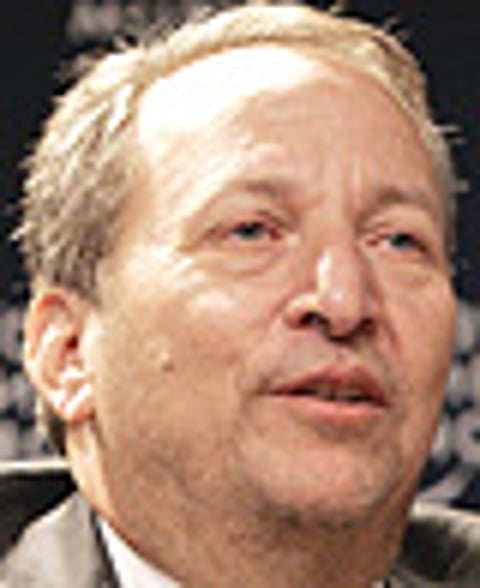
Lawrence H. Summers, 55, Director, White House National Economic Council
Son of economics professors; also Nobel laureate Paul Samuelson’s nephew. At 28, was one of the youngest tenured professors in Harvard’s history department. Resigned as Harvard prez in ’06 for controversial remark on intrinsic differences in the abilities of men and women. Favours regulating the financial sector: this could impact the flow of funds to India.
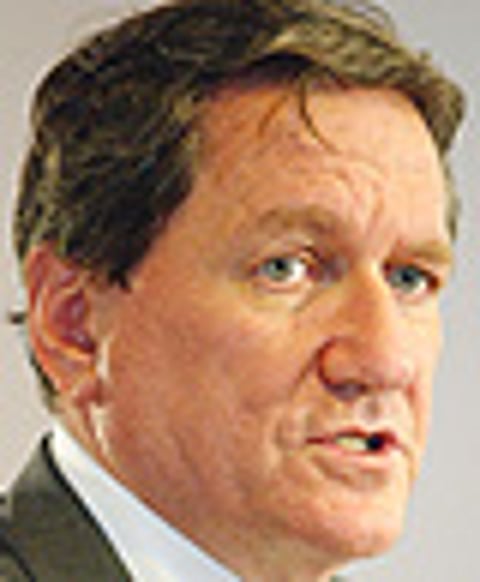
Richard C. Holbrooke, 67, Obama’s special envoy
Likely to handle Afghanistan-Pakistan, has had a chequered career spanning 40-odd years as diplomat, magazine editor, author, professor and investment banker. Shot to international fame in the mid-’90s for bringing peace to the Balkans as Clinton’s special envoy. Nominated seven times for the Nobel Peace Prize; is likely to get another shot should he be able to bring peace to South Asia.
***
Rose Parker, with tears glistening on her cheeks, softly repeated the oath as Obama took it. "I have to pinch myself to make sure this is all not a dream," said the 62-year-old who endured racism as a black woman living in Texas. Rose and her siblings were disallowed things white kids took for granted. "Life was a struggle," she said, pulling her headscarf tightly around her head as an icy wind whipped around her. Her four-year-old grandson Roland sat on a folding chair thumbing through a picture book she had brought along to keep him occupied. "He’ll never know what it took to get here. He’ll never have to fight the battles we did," Rose said, gesturing toward Roland. "And thank God for that!"
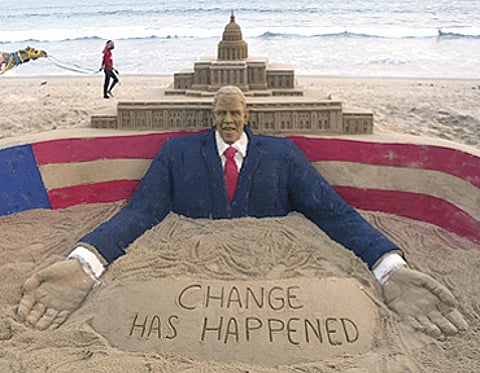
Nearby, a group of white youngsters jumped up and down chanting Obama’s name, their exertion prompted both by excitement and a desperate need to stay warm. "We’re witnessing history here. America has overcome," a red-faced Eric Kellner said joyfully, referring to the protest song We Shall Overcome that became the anthem of the civil rights movement. Eric and his buddies had come down from balmy Florida, bunked down at a friend’s pad in Washington’s Capitol Hill neighbourhood and had set out for the National Mall at 4 am.
For the thousands like Eric who had packed into the spaces between the marble-and-granite memorials and museums dotting the National Mall, the civil rights struggle is a story they’ve heard from their elders or read about in school textbooks. Four decades ago, the seeds of change were planted at the other end of the National Mall, on the steps of the Lincoln Memorial, where Martin Luther King Jr delivered his iconic ‘I Have a Dream’ speech to those demanding equal civil rights.
Obama has fulfilled King’s dream. He campaigned on the promise of change—his slogan striking a chord in a country mired in two wars, in Iraq and Afghanistan, a deepening recession and record unemployment. To the millions of his adoring supporters, he’s a saviour. And like most saviours, Obama must shoulder a burden of expectations, symbolised by the crop of freshly sprouted grey flecking his hair.
Allan Lichtman, a presidential historian at the American University in Washington, says the extremely high expectations of Obama are linked to his predecessor George W. Bush’s legacy. "People are thirsting for change," Lichtman told Outlook. Obama symbolises the change. "He’s a political leader, he’s a rock star, he’s an icon," says Lichtman. "He’s Abraham Lincoln meets American Idol meets Muhammad Ali—we haven’t seen anything like that before."
Writing in the Wall Street Journal, Juan Williams blamed the media for fanning expectations. "The same media people invested in boosting a black man to the White House as a matter of history have set very high expectations for him. When he disappoints, as presidents and other human beings inevitably do, the backlash may be extreme," he wrote. But such notes of caution do not worry Lichtman, who counters, "Can he meet these expectations? Of course not. But we can have dreams. Even Obama has admitted that the problems that face the country can’t be solved overnight."
Aware of the revolution of rising expectations, Obama has consciously sought to lower these. As Bill Clinton’s former deputy chief speechwriter, Jeff Shesol, pointed out in a New York Times article, "It’s interesting and, I think, significant that after a campaign predicated on change, Barack Obama spoke far less of change (he used the word only twice today) than Bill Clinton did (11 times) in his much shorter (yes, it’s true) first inaugural address."
But belief isn’t shattered by statistical analysis. People believe in Obama because the ideas he has espoused are precisely those the Americans, particularly the youth, subscribe to. Lichtman remains optimistic, "To continue the inspiration, the time for talking is over. He has talked the talk and now he wants to walk the walk."
Polls show people are being realistic, believing their problems can’t be solved overnight. The mid-term elections of 2010 will be Obama’s first test, giving him one clear year to deliver on some of his promises. "If he can’t deliver," says Lichtman, "instead of a Franklin Roosevelt he could be a Jimmy Carter—someone who doesn’t meet the challenges, becomes a one-term president and loses power to the opposition. That’s always the risk if you don’t deliver." Sample this indicator of popular faith in Obama—the downward trend in the stockmarket failed to reverse course on news of Obama’s inauguration.

In his inaugural address, Obama deftly conveyed to the nation the onerous task before him and the nation. "Today I say to you that the challenges we face are real. They are serious and they are many. They will not be met easily or in a short span of time. But know this, America—they will be met."
Negotiating through the throng at the National Mall to visit a local bar to toast the new president, Al White said he was "hopeful". A black man who struggles daily to pay growing medical bills, White can relate to a lot of what Obama had to say. "He understands our struggle. He’s one of us," White said of the new president, the son of a white Kansas woman and a black Kenyan father. It’s this belief that has led many to pin their hopes on Obama.
Aware of the critics "who question the scale of our ambitions—who suggest that our system cannot tolerate too many big plans", Obama thundered, with an assurance only he’s capable of, "Their memories are short. For they have forgotten what this country has already done; what free men and women can achieve when imagination is joined to common purpose, and necessity to courage."
Outside the Rosslyn Metro station, across the icy Potomac River, Kevin Smith, a homeless man, unrolled a threadbare sleeping bag on a cold tiled floor as he prepared to turn in for the night. "It’s a new day for America, alright, but nothing has changed for me," he said, grabbing a handful of newspapers from a nearby bin to keep warm. Emblazoned across the top of one of the newspapers he patted down was the bold declaration: "Change is now."
Tags